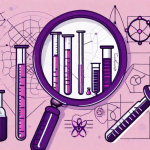Receiving a cancer diagnosis triggers a range of emotions, from fear to uncertainty. It’s crucial to acknowledge these feelings and seek support from loved ones and professionals. Coping strategies like relaxation techniques and building a support system can help manage anxiety and stress. Additionally, focusing on what’s within your control, staying informed, and maintaining a positive outlook are key to navigating the emotional challenges of cancer. With resilience and support, it’s possible to find hope and healing amidst the journey.
A cancer diagnosis can have a profound psychological impact, affecting our emotions, mental health, and overall well-being. From the initial emotional responses to the ongoing challenges of living with cancer, it is important to recognize and address the psychological aspects of this journey. Let’s explore some of the common emotional experiences and strategies for coping with the uncertainty, anxiety, and stress that can accompany a cancer diagnosis.
Initial Emotional Responses to Symptoms and Diagnosis
Upon experiencing cancer symptoms and receiving a diagnosis, a whirlwind of emotions can emerge. Fear, shock, disbelief, anger, and sadness are just a few of the natural responses one may feel. It is essential to allow yourself to acknowledge and process these emotions. Reach out to your loved ones, support groups, or mental health professionals who can provide a safe space for you to express your feelings.
Throughout this process, it is vital to remind yourself that it is perfectly normal to experience a wide range of emotions. Be kind and gentle with yourself, knowing that you are not alone in navigating these complex emotions.
A Spectrum of Emotions
Every individual’s journey with cancer is unique, and emotions can vary significantly from person to person. Some individuals may experience a sense of determination and resilience, while others may struggle with feelings of hopelessness and despair. It is crucial to understand and accept that your emotional response is valid, regardless of how it aligns with others’ experiences. Give yourself permission to feel and allow your emotions to unfold naturally.
Remember that emotional healing is a process. Be patient with yourself and trust that it is okay to have both good and bad days. Surround yourself with individuals who provide encouragement, understanding, and empathy.
Coping with Uncertainty
Uncertainty is a common challenge faced by those living with cancer. The unknown nature of the disease and its treatment can generate anxiety and stress. While it may be challenging, finding healthy ways to cope with uncertainty is crucial for your well-being.
Engaging in activities that promote relaxation and stress reduction, such as meditation, deep breathing exercises, and mindfulness, can help manage anxiety. Connecting with loved ones, support groups, or joining online communities of individuals facing similar challenges can provide a sense of support and shared understanding.
Overcoming the Anxiety of Cancer Tests
Undergoing cancer tests can be anxiety-provoking. The waiting period for results can feel unbearable. It is essential to remind yourself that anxiety is a normal reaction. Consider sharing your concerns with your healthcare team, who can provide you with information, answer your questions, and offer support.
To manage anxiety during this waiting period, engage in activities that divert your attention, such as reading a book, watching a movie, or engaging in creative pursuits. Remember that you have taken the necessary steps, and you are doing everything possible to manage your health.
How to Cope with the Uncertainty of Cancer
Coping with the uncertainty associated with cancer is an ongoing challenge. One effective strategy is to focus on what is within your control. Take an active role in your treatment plan by educating yourself about your condition and treatment options.
Develop a support system, including loved ones, medical professionals, and mental health professionals, who can provide guidance and encouragement during difficult times. Recognize that while you may not have control over the outcome, you have the power to make choices that prioritize your well-being.
Coping with the Fear of a Cancer Diagnosis
Fear is a natural response when facing a cancer diagnosis. It is important to recognize that fear can be paralyzing, and seeking support is crucial. It’s crucial to take actionable steps to manage this fear and maintain mental and emotional well-being. Here are some strategies to help you cope:
1. Seek Accurate Information
- Understand Your Diagnosis: Gather accurate information about your diagnosis, treatment options, and prognosis. Misinformation can fuel fear, so it’s important to rely on credible sources.
- Educate Yourself: Understanding the nature of your cancer can empower you and reduce feelings of helplessness.
2. Communicate Openly
- Talk About Your Fears: Openly discuss your fears with friends, family, or a healthcare provider. Expressing what you’re going through can be cathartic and help others understand how to support you.
- Seek Professional Counseling: A mental health professional, especially one who specializes in oncology, can provide valuable support and coping strategies.
3. Build a Support System
- Join Support Groups: Connect with others who are going through similar experiences. Cancer support groups can offer understanding, camaraderie, and practical advice.
- Rely on Loved Ones: Lean on your personal network for emotional support. Don’t hesitate to ask for help when needed.
4. Focus on What You Can Control
- Adopt Healthy Habits: Engage in activities that promote well-being, such as a balanced diet, regular exercise, and sufficient sleep.
- Practice Stress-Reduction Techniques: Techniques like mindfulness, meditation, or yoga can help manage stress and anxiety.
5. Plan for the Future
- Be Proactive in Your Care: Actively participate in your treatment planning. This can include asking questions, discussing treatment options, and considering second opinions.
- Organize Your Affairs: Getting your affairs in order can provide a sense of control and peace of mind.
6. Take Time for Yourself
- Engage in Enjoyable Activities: Make time for hobbies and activities that bring you joy and relaxation.
- Give Yourself Permission to Rest: Recognize that it’s okay to have days when you’re not feeling your best. Allow yourself time to rest and recover.
7. Maintain Hope and Positivity
- Focus on Positive Outcomes: While it’s normal to fear the worst, try to focus on positive stories and outcomes. Many people live long, fulfilling lives after a cancer diagnosis.
- Set Goals and Look Forward: Set achievable goals for yourself, whether they are related to treatment milestones or personal ambitions.
8. Regular Follow-Ups and Health Checks
- Stay on Top of Appointments: Keep up with your medical appointments and screenings. Regular check-ups can provide reassurance and catch any changes early.
Engaging in therapeutic techniques, such as cognitive-behavioral therapy, can help in managing fearful thoughts. Surrounding yourself with positive influences, engaging in activities that promote relaxation, and seeking professional assistance when needed can empower you to face your fears head-on.
Finding Resilience in the Face of Cancer
Resilience plays a vital role in coping with cancer. It is the ability to adapt and bounce back from adversity. Cultivating resilience involves building a positive mindset, finding meaning and purpose in life, and nurturing emotional well-being.
Engaging in activities that bring joy and fulfillment, maintaining a healthy lifestyle, and connecting with others who have overcome similar challenges can help foster resilience. Remember that resilience is a journey, and small steps every day can contribute to your overall well-being.
Supporting Your Mental Health During Cancer Treatment
During cancer treatment, focusing on your mental health is as important as physical well-being. Be open and honest with your healthcare team about your emotional state, as they can provide resources and support.
Consider incorporating stress-reducing practices into your daily routine, such as exercise, relaxation techniques, and engaging in activities that bring you joy. Prioritizing self-care and seeking professional help when needed are essential components of supporting your mental health throughout treatment.
Building Emotional Support During Cancer Care
Building a strong support system is crucial during cancer care. Reach out to loved ones, friends, or support groups who can provide emotional support and lend a listening ear.
Consider joining support groups where you can connect with individuals who understand the challenges you are facing. Online communities and counseling services can also offer valuable support, providing an avenue to share experiences, seek advice, and alleviate feelings of isolation.
Understanding the Stress of Cancer Treatment
Cancer treatment can be physically and emotionally demanding, leading to increased stress levels. Recognize that stress is a normal part of the journey and prioritize self-care during this time.
Practice stress-reducing activities, such as yoga, journaling, or engaging in hobbies that bring you joy. Communicate your needs to your healthcare team, who can provide resources and strategies for managing treatment-related stress.
In conclusion, the psychological impact of cancer symptoms and diagnosis is profound. It is essential to acknowledge and address the complex emotions that arise throughout this journey. With support, coping strategies, and resilience, we can navigate the challenges and find hope, strength, and healing. Remember, you are not alone, and your mental well-being matters every step of the way.






